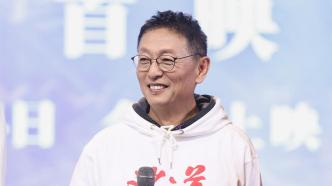
When invited by Shanghai Film Group to shoot the movie "Wangdao", director Hou Yong, like most people, only knew that Chen Wangdao was the first translator of the complete Chinese version of "Communist Manifesto". He didn't know exactly what posture Chen Wangdao took to devote himself to the torrent of the times at that time, and he didn't know what kind of life he had experienced. After reviewing the materials for several months, Hou Yong felt that this person should really be known to the public, and the "Communist Manifesto" is not just an abstract theory in a textbook, it is worth studying carefully by people today.
On March 24, the movie "Wangdao" was officially released. Starting in 1920, the film tells the life of Chen Wangdao, the first Chinese translator of the "Communist Manifesto", who has gone through turbulent changes, and has always pursued the truth of saving the country and the people like his name "Wangdao". The love, teacher-student relationship is vividly described, and the panoramic view presents the journey of Chen Wangdao and the people with lofty ideals around him to find and uphold the truth throughout their lives.
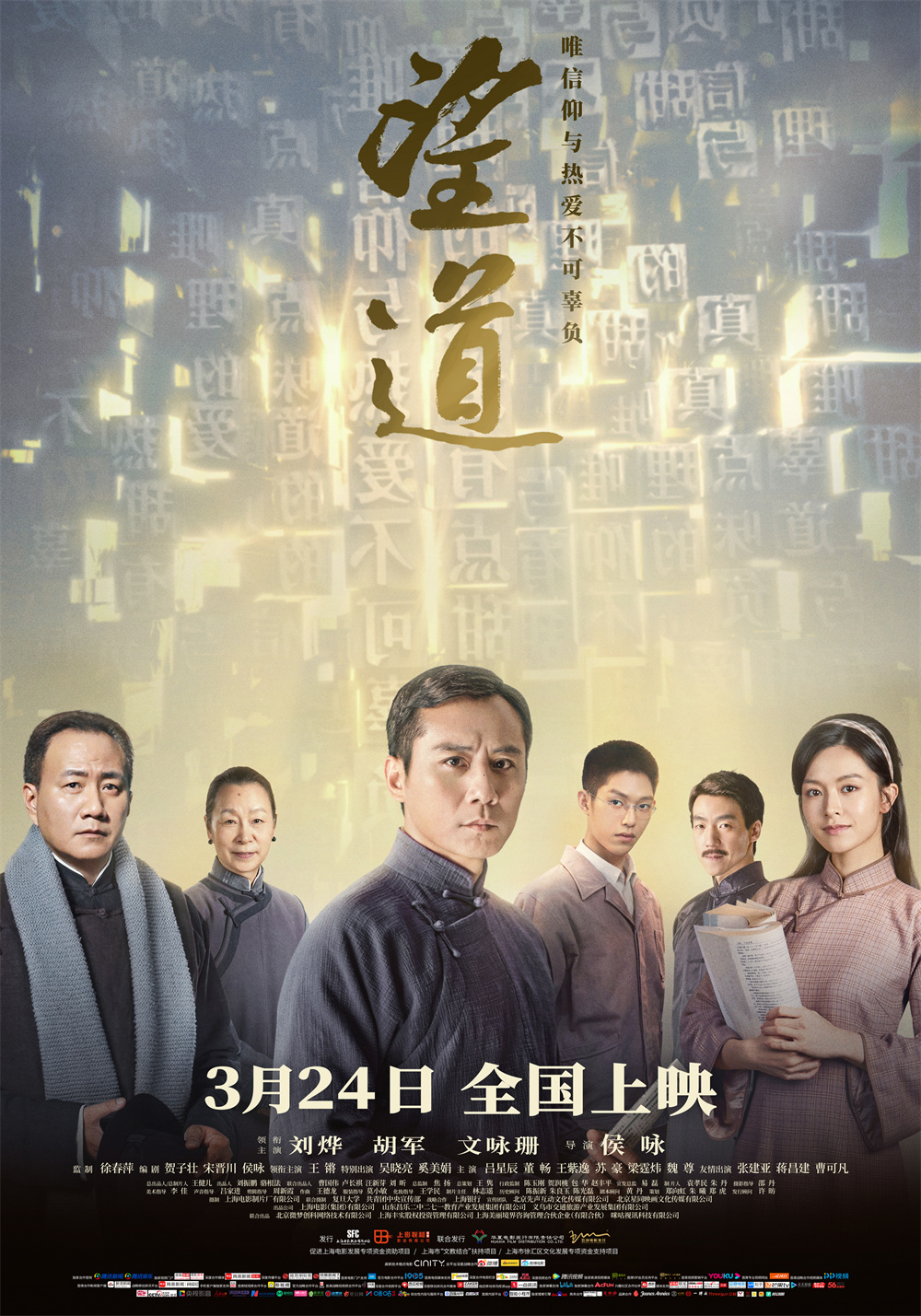
"Looking for the Way" poster
In order to make "Wangdao" well, Hou Yong studied the "Communist Manifesto" for no less than 20 times. Taking Chen Wangdao's life experience as the starting point, he diverged and followed the life experiences of every contemporary person who intersected with him, and extended the An era of educated youths looking for a way out for the country, with several ups and downs in it.
Regarding this character, the most vivid and widely circulated example is that Chen Wangdao dipped the rice dumpling in ink to eat because he devoted himself to translation, and thus produced the well-known story of "the taste of truth is sweet". Although this scene is vivid, it is not easy to completely stand up the characters to support a movie.
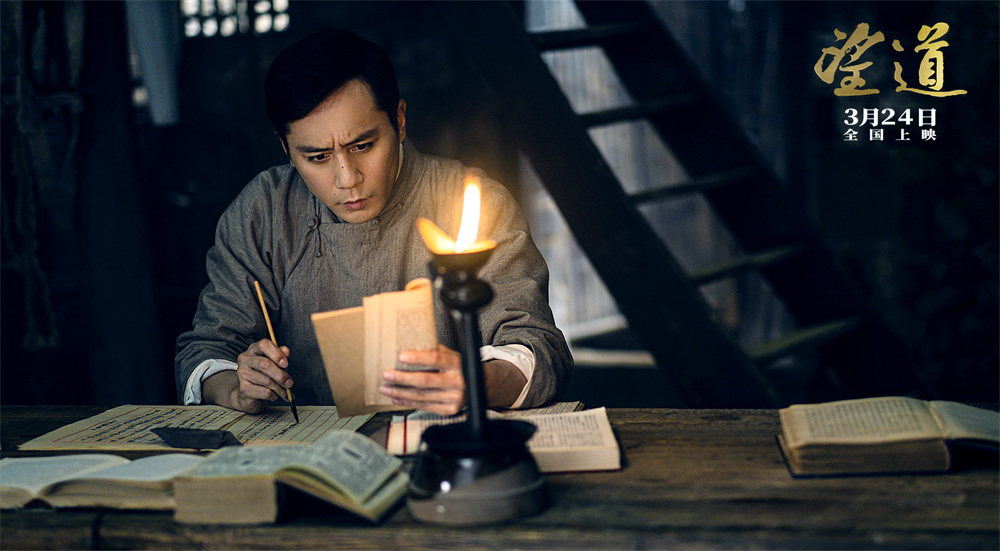
Liu Ye as Chen Wangdao
A study of Chen Wangdao's life shows that he completed the translation of the first full Chinese translation of the "Communist Manifesto" at the age of 29. This is the highest achievement in his life, and it can be said that "the debut is the pinnacle". However, he kept a low profile, rarely talked about this experience with others, never kept a diary, and kept no letters. According to official data, apart from translating the "Communist Manifesto", Chen Wangdao spent most of his life as a down-to-earth scholar. He served as the president of Fudan University and devoted himself to studying linguistics, rhetoric, journalism, aesthetics, and education. The academic attainments are extraordinary, but these films are too abstract and loose for films that rely on dramatic conflicts to advance the plot.
"Chen Wangdao's starting point is too high. The starting point of his contact with the revolution was to translate the "Communist Manifesto". In such a huge change, can he really remain flat?" After sinking into the study of massive historical documents, numerous discussions with relevant experts, and repeated discussions with the professional screenwriting department overthrowing and rewriting the script, the film finally Determined the context of the narrative - focusing on personal efforts and choices in major historical events, and integrated the fate of Chen Wangdao and the people around him into major historical narratives in decades of time clues. "I finally found a dramatic thread, which is also the clue that attracts the most attention, which is his relationship with the Communist Party. This clue can well rely on the character's emotional changes, character development, inner growth and Watching of faith and persistence." Hou Yong wrote in his creation of "Wang Dao".
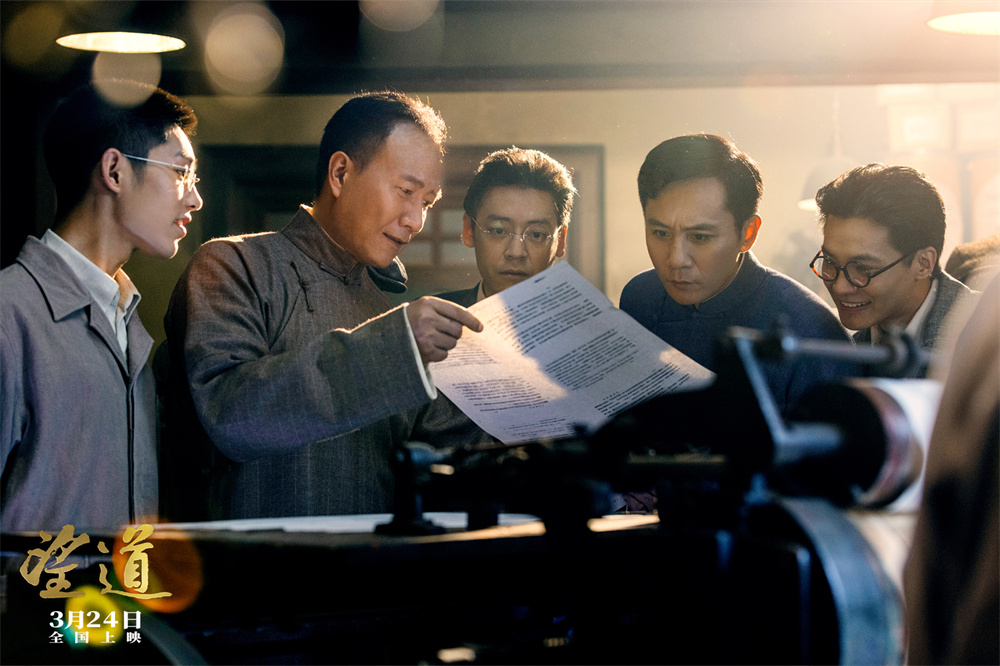
Stills of "Wangdao"
Hou Yong graduated from Class 78 of the Photography Department of Beijing Film Academy and is also a member of the "Fifth Generation". He is a photographer, director, screenwriter, producer, scholar and other multiple identities. He has won the Golden Rooster Award four times. He has served as the queen photographer of directors such as Tian Zhuangzhuang and Zhang Yimou. Film and television dramas such as "Taste the Courage" and "Crossing the Guandong (Part 2)" also left a deep impression on the audience.
Hou Yong, who was born as a photographer, has an elegant and quiet temperament. Some people call him "the three eyes of Chinese movies" together with Gu Changwei and Lu Le. He is good at image modeling, and he also designed the tone of the film from dark to bright, in order to echo the awakening era of the ideals of young people under the tribulation of the land and nation.
When the film was released, director Hou Yong accepted an exclusive interview with The Paper reporter and talked about his creative process of searching for the deeds of his ancestors and using the film "Chasing the Great Way".

Director Hou Yong attended the Shanghai premiere of "Wang Tao".
【dialogue】
In the ups and downs of the times, a life of firm belief in "unchanging"
The Paper : Shooting a film about a historical figure, what special work and preparation did you do this time?
Hou Yong : First of all, of course, we need to understand that period of history and the people at that time, including Chen Wangdao, some friends and colleagues around him, and his students. So the information I looked at was not just Chen Wangdao's. Everyone is a bunch of stories, and the data is very vast. Later, there were two boxes in my home, and each box was stacked two layers. These books were basically my frequently used materials. Now there are hundreds of articles stored in the computer.
The lives of their generation and their actions are too rich and interesting. When you go deeper, you will find that everyone is so colorful. After watching more, you will naturally establish a sense of the scene of that era, or an atmosphere of the era, which can be felt and seen. Seems like. This is especially important for a director. If he has no perception of the atmosphere of that era, it will be difficult to find a fulcrum in his creation.
The Paper : According to the understanding of many of us ordinary people, Chen Wangdao was "the first person to translate the full Chinese translation of the "Communist Manifesto".
Hou Yong : In the process of reading Chen Wangdao's biography, I was looking for what attracted me most in him, or what could attract the audience, so I zoomed in to portray him. It seems that what attracted me the most, apart from translating the "Communist Manifesto", was his role as the president of Fudan University and some of his later experiences. What I admire about Chen Wangdao is that he became famous very early. He translated the "Communist Manifesto" at the age of 29, and he has reached the high point of his life. In fact, he lived to be over 80 years old, which is a very long life. Under the circumstances at that time, he was able to walk steadily to the end of his life, which shows the firmness of his faith. I also want to reflect this in the film.
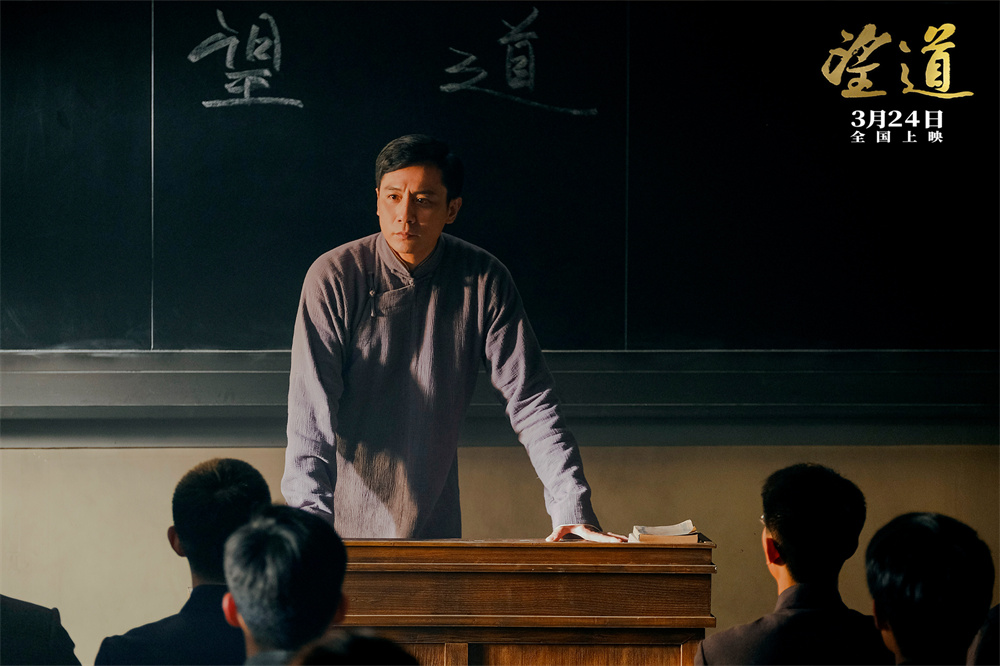
Stills of "Wangdao"
The Paper : For a biopic, how do you balance the short 20 days of translating the "Communist Manifesto" with his entire life? When constructing the context of this person's life, which stages of his life do you want to capture? , What qualities describe him?
Hou Yong : Of course, translating the "Communist Manifesto" is the most important thing, because in terms of life or the whole history, a person's achievements cannot be measured and judged by the length of time or age. The magnitude of the significance and weight, the contribution of this matter to human society, and to the whole world.
In fact, during the creation process, we have been avoiding the concept of "biographical film" and do not want to set it in a purely biographical mode. If we really think about how to do it according to the biographical film, this film will not be well done, because Chen Wangdao has limited historical materials, and it is necessary to fully show some of the things he has done in each stage of his life, or some of the experiences he has faced. Using this to form a story doesn't work. And he has another characteristic, that is, this character, his life is "unchanged", not ups and downs. Generally speaking, if you want to write a biography of a character, the more ups and downs the better. For example, in Les Miserables, Jean Valjean changed from a beggar to a mayor. This kind of drama is interesting. However, Chen Wangdao's starting point in life was the highest point in his life. He was a professor at a university when he translated the "Communist Manifesto", and he was still a professor at a university when he died. The end point of our narrative is the establishment of a new China. The middle process is written like a chronicle, which is very boring, because he has not changed in it, he just follows the tide of the times and walks his own way. How to do it? We chose the changes of the people around him. Strange to say, the people he has close contact with all have huge life ups and downs. Why is everyone changing, but he remains the same? This formed a contrast, so his life was revealed. So the final presentation of the film is episodic. For example, the intersection between him and Dai Jitao is in this section. In the next section, he and Dai Jitao will meet again. But at this time, Dai Jitao has completely become another person. The general things and the changes in the relationship between him and his surrounding friends have strung together his whole life.
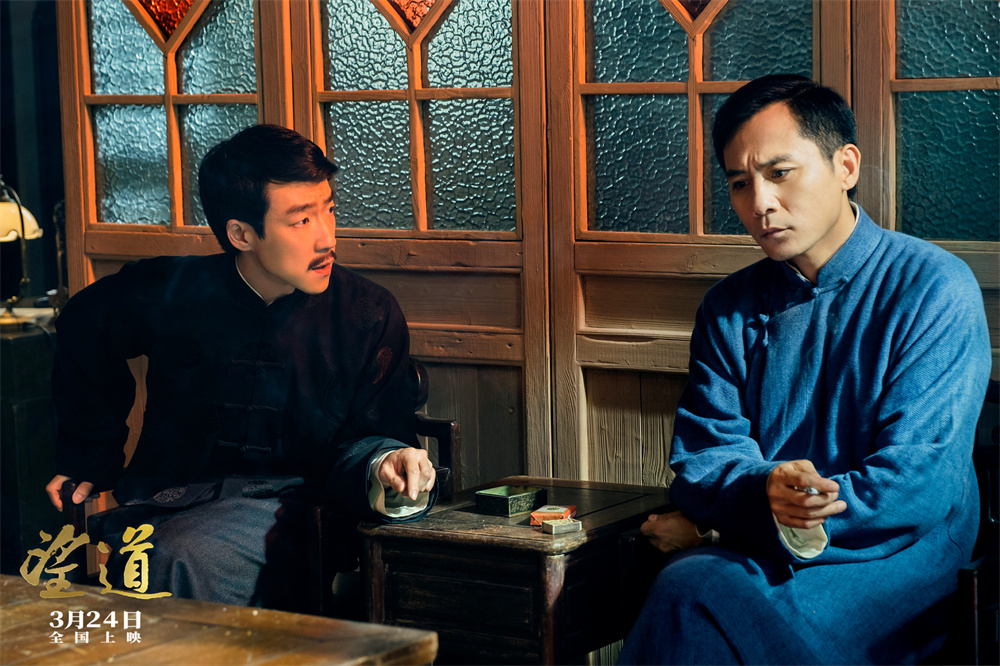
Chen Wangdao (right) and Dai Jitao
Using Movies to "Translate" the Communist Manifesto
The Paper : From the point of view of the movie itself, the core event is the translation of the "Communist Manifesto", but this is not a movie-like or dramatic event. How to make this event look good?
Hou Yong : This is a big problem. If it is not done well, it will easily become a very flat process. It is necessary to set its resistance and limit the progress of its normal translation, so as to form a corresponding contradiction. In fact, there were no contradictions in this process. It may be said that it was very cold in the spring, and he lived alone in the woodshed, forgetting to eat and sleep, and sometimes he could not eat. But these problems are easy to solve, and none of them can become a contradiction.
So first I thought of taking the time limit as a sense of crisis, and it must be completed within 20 days, otherwise the movement of the communist group would be affected and delayed. When Chen Duxiu assigned him a task, he even "bargained" with Chen Duxiu. After a lot of arguing, he had to translate quickly and well in a short period of time. After this premise is set, we will use an image object to keep reminding. At that time, there was no watch, so I could only design a calendar. Day by day, each day on the calendar was crossed out, visually making this sense of urgency approaching, like a second hand, "da da da" The ground has been urging him to do it.
Time alone is not enough, there must be a difficulty that can make the progress stagnate at once, this is the basic setting of a drama, so that there will be dramas to unfold and conflicts can escalate, so we must find a difficulty. This difficulty must not be illness, hunger and cold, these external things, we must find a real core content of translation. What should I do if I get stuck on the content and cannot translate it? So follow this idea to design the following scenes, and I think the effect is quite good after shooting. Because the process of translating the "Communist Manifesto" is the context of the whole film, its importance determines that you must make this scene more exciting. In fact, to put it bluntly, this is to use the creative experience accumulated over the years to complete it.

Stills of "Wangdao"
The Paper : How can such an abstract theory as the "Communist Manifesto" be concretely implemented in the visual and story-telling medium of film?
Hou Yong : This is my original intention at the beginning, that is, I especially hope to show the core concepts of the "Communist Manifesto" to the audience more in the form of movies. It is equivalent to touching and "translating" this great work in the way of a movie. Because I think the current audience's understanding of the "Communist Manifesto" needs to be deepened in this way. I have studied the "Communist Manifesto" very carefully and figured out the key points in it. It is indeed a very great work of literature. It has a lot of content that is very rational, organized, and logical. It is really difficult to express it visually in a movie, and it can only be expressed in the form of dialogue and narration. The only excerpted section is the imagining of communism. This section happens to be more vividly translated in Chen Wangdao's version, while our current popular version is more theoretical. So I originally imagined that this section could be shown visually, but unfortunately, it was not realized due to limited conditions.
I especially hope that the audience of this film will have the urge to study the Manifesto after watching the film, and I also hope that everyone can calm down and watch the "Communist Manifesto".
The Paper : Tell me about the selection of several leading actors, and what design did you make that fit the characters at the time?
Hou Yong : Let me talk about Liu Ye first, he is still as innocent and cute as when we first collaborated on "Jasmine Blooms". Every time he shouted to stop, he had a look of anticipation, waiting for my evaluation, which I found very cute. At the same time, his performance experience is much richer than before. If you give him a request, he will fulfill it for you immediately.
To be honest, when I played Chen Wangdao to Liu Ye at the beginning, I was always worried that there would be a little distance. First of all, it was because Liu Ye was taller, while Chen Wangdao was not tall, and he was a thinner old man. In my impression, he has a sad and melancholy expression on his face, as if he always has some inexplicable doubts in his heart. In the end, I found that there was something in Liu Ye's eyes. Got closer after styling. Before this film was made, it was hard for you to imagine that the relationship between Liu Ye and Chen Wangdao could be so close. The first thing we filmed was the translation of the "Communist Manifesto". After filming this section, I was full of confidence, and felt that he embodied Chen Wangdao's characteristics very clearly.
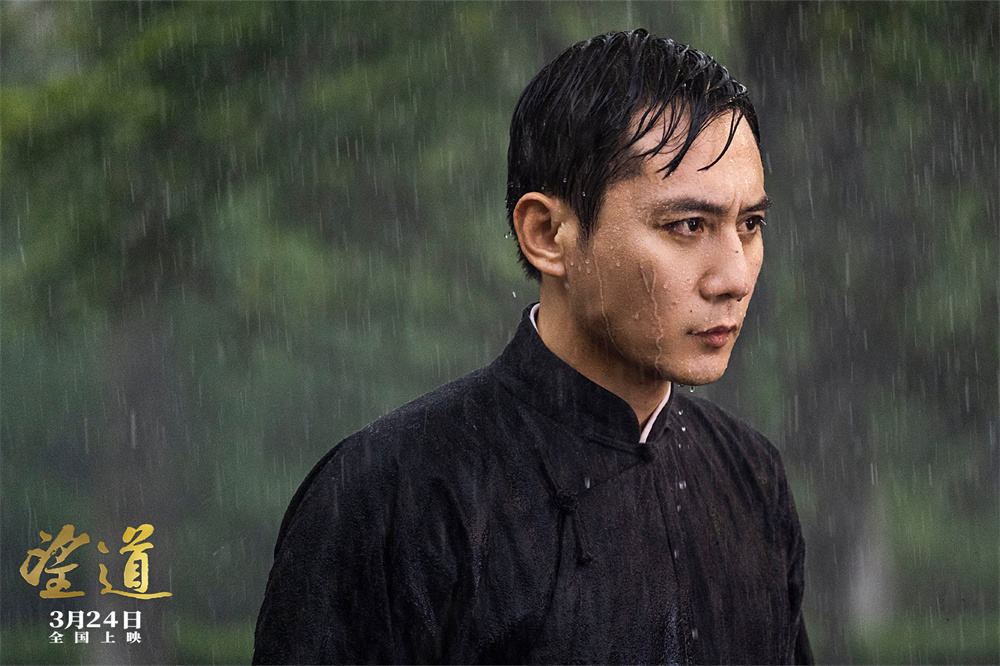
Liu Ye as Chen Wangdao
Chen Duxiu played by Hu Jun is also different from what I imagined at the beginning. Hu Jun talked to me about the Chen Duxiu he wanted to portray, a very lifelike Chen Duxiu, not so neurotic and high-profile as shown in many literary and artistic works, all shouting slogans or making revolution. Let him weaken this toughness a bit, and show his side as an elder more. I agree with what Hu Jun wanted to express, and I said yes, and I very much support him in doing so. His ideas are quite creative and quite challenging, not only for himself, but also for the image of Chen Duxiu. And we have a difference from Chen Duxiu in all previous works, that is, we have a scene showing his state in his later years, so there are some comparisons before and after.
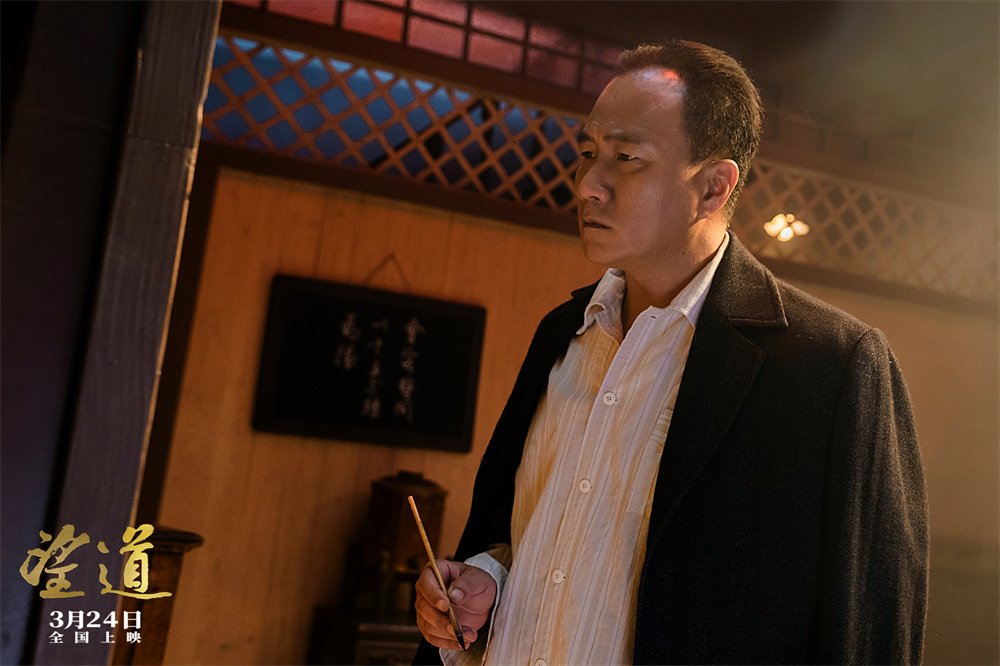
Hu Jun as Chen Duxiu
Another example is Wu Xiaoliang, the character Dai Jitao he played, he believed in Buddhism in the later stage. Although we don't have a special play to show it, his belief in Buddhism has an impact on this character and his life path. When he was young, he was looking for a revolutionary direction. At that time, he followed Sun Yat-sen and firmly believed in the Three People's Principles; later, after Sun Yat-sen passed away, he followed Chiang Kai-shek. In the constant struggle, he stood on a position that firmly opposed the Communist Party; for a long time After that, he found himself hesitating again, and later he converted to Buddhism. We later chose a scene where he met Chen Wangdao in a temple, to reflect the change in his worldview. And when we were researching the materials, we found that when he was young, in high school or junior high school, he sprained his ankle and hurt his tendons in physical education class, so now Wu Xiaoliang is performing, if you look closely, you will find that he is a little lame. It is a design for the character Dai Jitao.
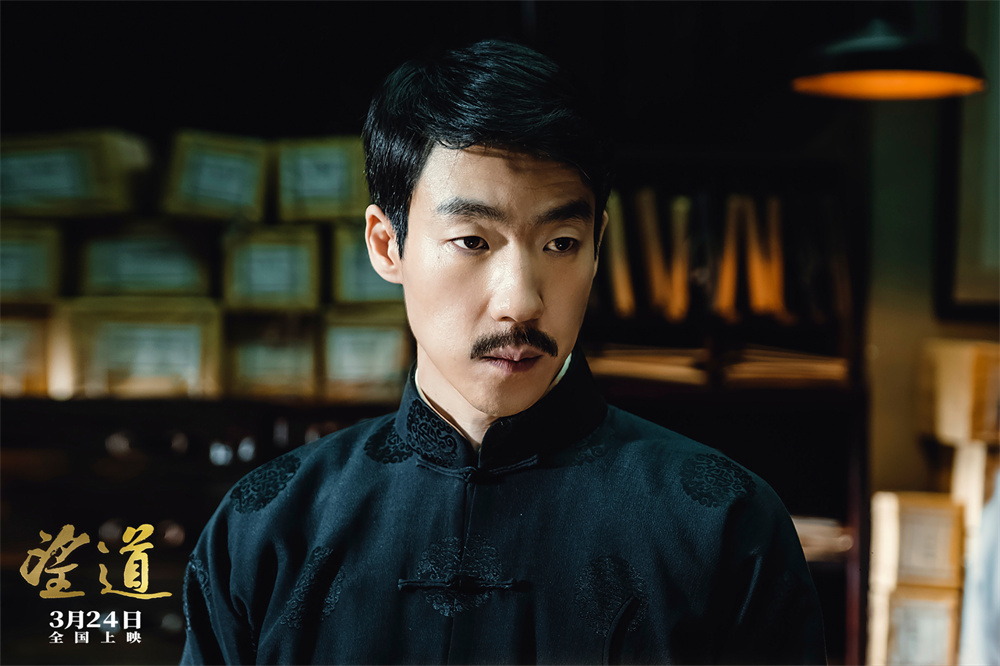
Wu Xiaoliang as Dai Jitao
The Paper : Such a country is in suffering, and it is an age of awakening for young people to arouse their ideals. As a photographer, how would you choose photography and visual style to echo it?
Hou Yong : Visually, I want to create a historical texture, and the requirements include scenes, characters, shapes and other aspects. I explained a big frame to the photographer, saying that low contrast and high light ratio should be used to set the direction of the film's color and tone. It is a trend from dark to bright, which is also in line with the translation of this film "The Communist Party "Manifesto" sets the process from a single spark to a prairie fire in the end.
Every time I shoot an unfamiliar subject, it is a learning process
The Paper : For you, "Wang Dao" is a task you have received, or is it a work with a real creative impulse?
Hou Yong : I'm used to the creative mode of us as photographers. Directors always find us, and we take over. I have been like this since I was young, so every time I face the creation, it is a new and unfamiliar topic. Then how do I devote myself to the creation, how do I find some points in the creation, I can express my feelings, This is the pattern I'm used to. Except for "Jasmine Blossoms", I have been found for all the remaining photography and director themes.
This kind of creative mode will have an advantage-every subject is a subject that is unfamiliar to me. The process of getting in touch with this subject is a process of research and learning, and then I really understand the scope of the subject I am in contact with. It happened naturally, and after completing it, you will naturally become an "expert".
The Paper : This time, I held repeated meetings with the screenwriter team of Shanghai Film Group to overthrow dozens of drafts and polish the script. What kind of feeling does this method bring to you?
Hou Yong : We have been working in this way since we came out of school. All the problems are on the table, you say what you say, and then take action after integration. Including why our generation of photographers has so much involvement in film creation, which is rare in other models in the world. For example, the U.S. is very professional. They don’t overstep the threshold and perform their own duties. It is impossible for the photographer to take care of the script. So everyone discussing the script together is a way I am very comfortable with, and a way I have to rely on.
The Paper : It is said that you wrote a 20,000-word director's explanation for the film. What does this creative habit mean to you?
Hou Yong : This is helpful in the stage of writing a desk, and it is a form to help thinking. If you don’t write this, you may not be able to understand many things from looking for information in the chaos. Among the 20,000 words, 1/3 to 2/5 of the content is my own understanding of the "Communist Manifesto", and the rest is how I structure Chen Wangdao's life story, including the vertical time coordinate and the horizontal relationship between the characters This kind of coordinates, as well as the specific shooting method.
The Paper : According to statistics, you were the one who made the most films in Class of 78. After becoming a director, you did not lose your job as a director of photography. What do you think of these two identities?
Hou Yong : I like the state of being a photographer. I am very focused and less disturbed, unlike being a director who has all kinds of troubles, obstacles from all sides and some wishes that cannot be realized. In photography creation, it is relatively simple. Compared with directing, the photography major is very indifferent to the world. It is enough for you to be yourself.
But in terms of self-expression, being a director still needs to be more sufficient. After all, you want to express yourself when you shoot something. For example, if you understand the social point of view, you have to be a director to do it. Only the director can express from the beginning of the text, and the photography will not involve the original creation, but only the icing on the cake, helping to convey an emotion.
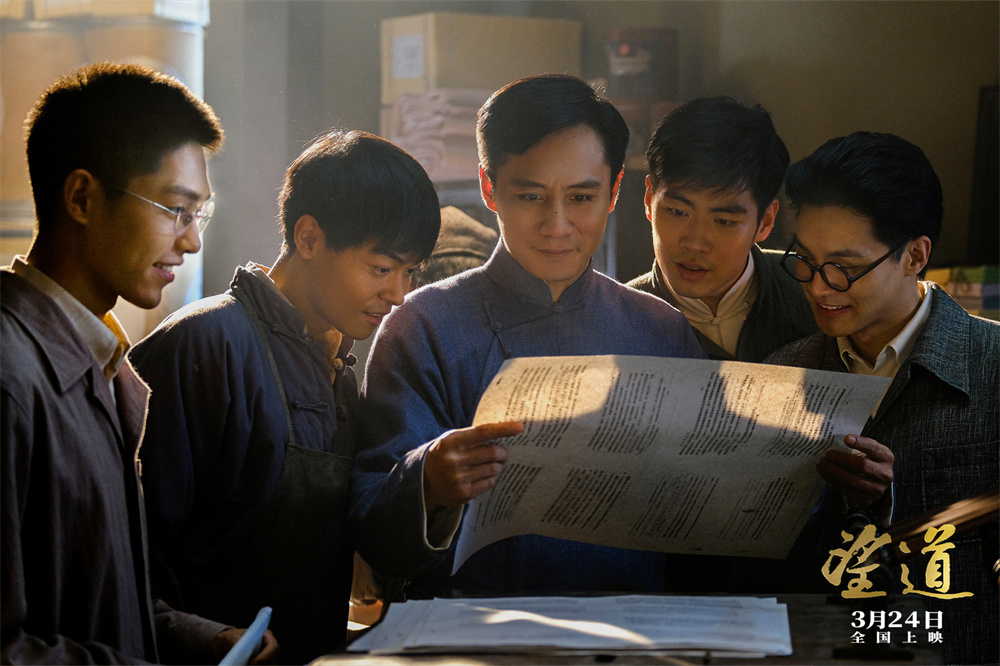
Stills of "Wangdao"
The Paper : The movie "Wang Dao" is a group portrait of "national scholars", and it is also the youthful choice of "post-90s" and "post-00s" a hundred years ago. What kind of portraits of historical figures do you hope to convey, and how do you hope the audience will treat them? people's stories?
Hou Yong : I think no matter how big or small their achievements and status are, as long as they work for the destiny of the country, change the living conditions of the masses, and change the social situation, and sacrifice their lives, these people are national scholars, and these people in our film are such national scholars .
For the audience, it is possible to learn about that era, those characters, their living conditions, thinking states, and thinking states through this film. I think there is no harm in knowing it. Look at the group of people who are about the same age as you 100 years ago, how they lived, what happened to them, and you can look at it with this mentality. In fact, the artistic characters we portray in the film are a kind of respect our generation has for these advanced intellectuals and revolutionaries. I hope that our reverence can be felt by the current audience. If you are interested, you can read the information and learn about their stories. Their lives are really rich, many times richer than our current life, it is so wonderful.


